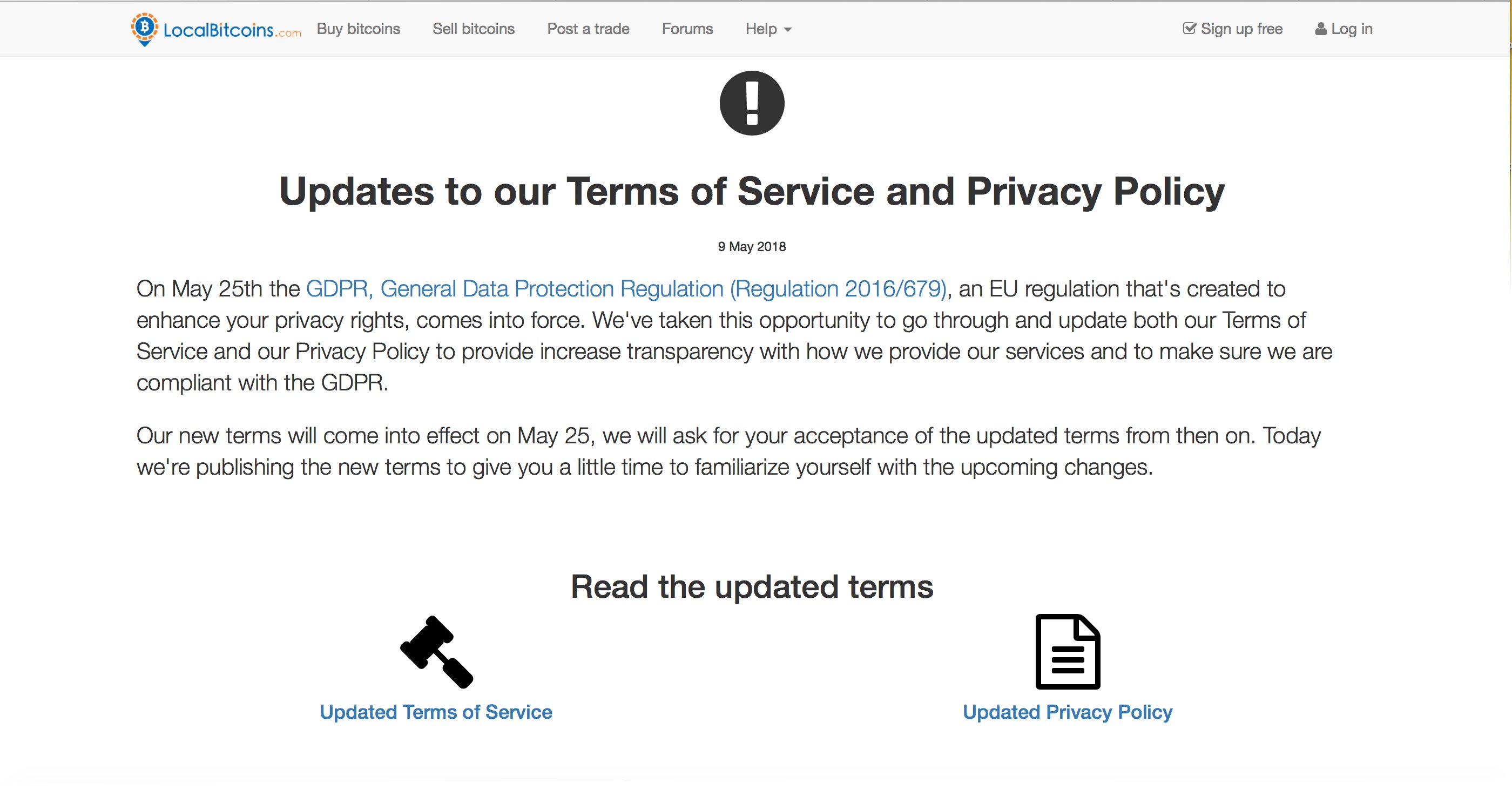Latest news about Bitcoin and all cryptocurrencies. Your daily crypto news habit.

Just recently news.Bitcoin.com reported on traders who exchanged “significant” trade volume using the peer-to-peer platform, Localbitcoins, by receiving warnings to upload their identity before they could proceed trading. Now the Localbitcoins organization has updated its terms of service agreement which comes with a few new guidelines concerning ID verification and data retention.
Also read: Markets Update: Cryptocurrencies Lose Steam During the Weekend
Localbitcoins Updates its ToS, Highlighting ID Verification and the Organization’s Privacy Policy
Localbitcoins the peer-to-peer exchange founded in June 2012 in Helsinki, Finland has been a very popular trading platform for quite some time. For a while, users could trade in a fairly anonymous manner as it wasn’t required for traders to upload their identification. However a few years ago the organization added the ability for users to verify their state ID or license through a system called Jumio Netverify. A user could voluntarily upload their ID, adding more trust to the trading situation if the person is a real individual. Then this year traders who have been trading “significant” amounts of BTC volume reportedly were being asked to upload their ID to proceed to trade further using the platform.
Now the business has updated its terms of service (ToS), and explains much of the changes are due to EU regulation, specifically the General Data Protection Regulation (Regulation 2016/679). Cryptocurrency enthusiasts thought that it was odd that Localbitcoins suddenly announced changing its ToS this month, due to this specific regulation which is supposed to actually limit data harvesting, and allow citizens ownership over their identity rights online. Localbitcoins new ToS highlights a few things users should know about identification requirements.
Some Situations May Prompt ID Verification
Localbitcoins states the organization still does not enforce ID verification as a mandatory procedure for users but says there could be situations where you are required to submit an ID.
“We don’t require ID verification for all users, but in some situations, you may be asked to verify your ID with us,” explains the website.
The following situations will prompt the company to ask the user to upload an ID such as trading over certain volume limits and when advertising, or if someone hacks your account, fraud investigations, and account recovery.
“It is our top-most priority to ensure that Localbitcoins is a safe and secure bitcoin marketplace and that no one is able to use our service for money laundering or other unlawful activities,” the web page states.
Most fraud on Localbitcoins stems from users attempting money laundering. We believe that taking a strict stance in this regard is in the interest of our users and important for our brand as a trustworthy marketplace.
The Quest for Decentralized Exchanges Continues
As far as retaining user data and the organization’s privacy policy, Localbitcoins says they had to rewrite their entire policy. After people began to digest the latest Localbitcoins statements and how the ToS which will be enforced on May 25, many bitcoin enthusiasts again talked about platforms like Shapeshift, and decentralized exchanges like Barterdex, Bisq and others. Again, most cryptocurrency proponents understand the problem with Localbitcoins is the fiat exchange process, which is something you cannot do with Shapeshift.
What do you think about Localbitcoins new ToS? Let us know in the comments below.
Images via Pixabay, Superbad, and Localbitcoins.
Do you like to research and read about Bitcoin technology? Check out Bitcoin.com’s Wiki page for an in-depth look at Bitcoin’s innovative technology and interesting history.
Disclaimer
The views and opinions expressed in this article are solely those of the authors and do not reflect the views of Bitcoin Insider. Every investment and trading move involves risk - this is especially true for cryptocurrencies given their volatility. We strongly advise our readers to conduct their own research when making a decision.

